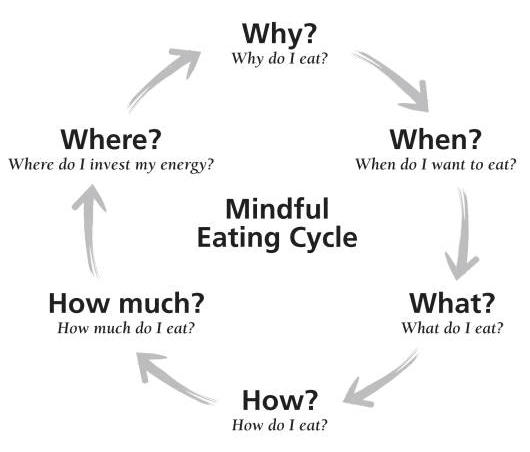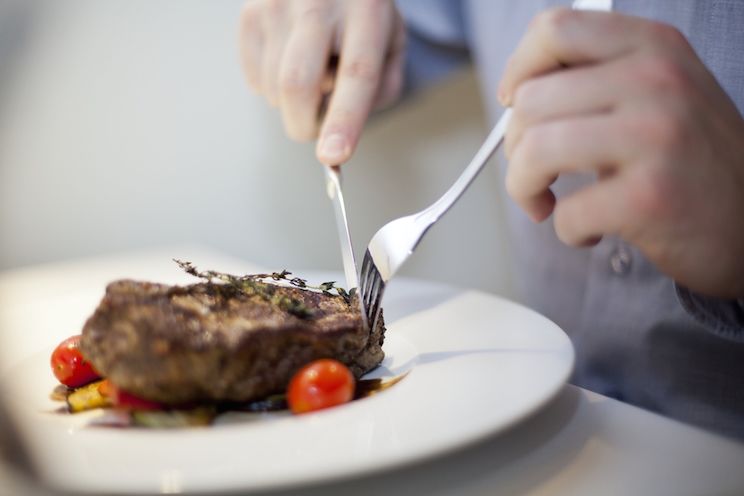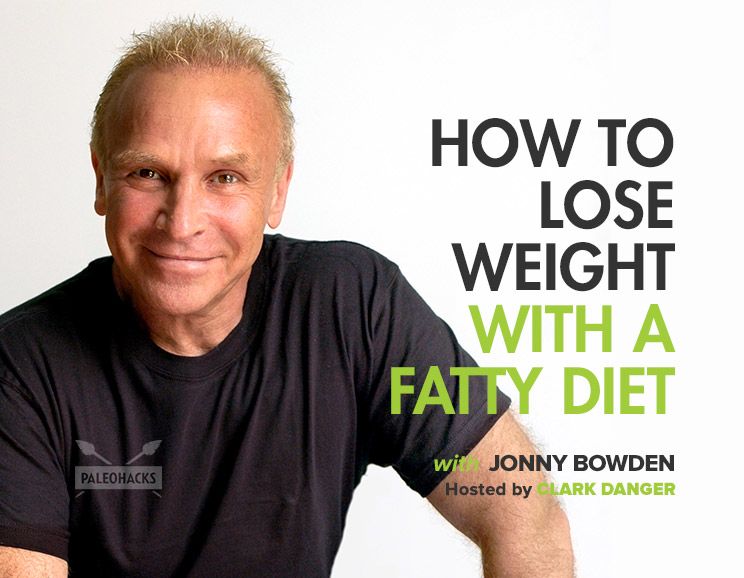Believe it or not, mindful eating might be the key to helping you enjoy food more — and lose weight at the same time.
What is mindful eating, anyway? To put it simply, mindful eating is dining with intention and paying attention, all without judgement. Mindfulness can be practiced at any moment of your day, during any activity. When applied to your daily eating, it can be your best friend if you’re also trying to shed a few pounds.
Losing weight is a good starting goal when thinking about “going on a health kick.” But remember that although weight loss may be one of the most noticeable outcomes of a change in your eating habits, it is not the only factor by which you should judge your own health.
Can you spare 10 minutes a day? Then you can do this 7-Day Paleo Weight Loss Bodyweight Workout Challenge!
Click here to get your FREE copy!
Things like blood pressure, nutrient absorption, and even social support and physical environment are all factors that should be considered when assessing health.
When you find yourself battling against your urges to stock up on junk food and drinks, it’s best to remember that there is a bigger picture to changing your habitual eating tendencies, and that losing weight will come as a side effect of living a healthy Paleo lifestyle—and notice that it’s not just a Paleo “diet.” [tweet_quote] Are you eating to live or living to eat? [/tweet_quote]
Though it’s always nice to fit into smaller clothes, or lose some weight for the camera, eating mindfully will trump dieting in creating longer lasting changes to your weight and lifestyle habits.
Diets are almost always synonymous with short-term restriction which can leave you feeling deprived. Most diets fail within the first week and may not be your best bet for losing weight and/or keeping the weight off.
Eating with mindfulness will help build healthy habits, will help you feel satisfied with healthy food consumption choices, and build an acceptance of an “eat to live” belief versus a “live to eat” belief.
In a pilot study, obese individuals practicing mindful eating were seen to result in significant changes in not only eating behavior and weight, but also in their psychological distress. Mindful eating can be thought of as a cycle of questions:

Ask yourself these questions every time that you eat something and set your intentions based on your answers.
Practicing mindfulness is also dependent upon your breath. During most hours of the day, our breathing typically goes under the radar, but focusing on this habitual function will help strengthen your mindful eating. Breathing in and out while saying a mantra to yourself will make things a little easier.
Try something like, “Will this make my body happy?” or “Can I even pronounce the names of the ingredients in this?” or “I’m eating to nourish and energize”.

Other helpful tips include:
- Plan out your meal times for the day and set aside time to appreciate and enjoy your meals. Try to eat at the same time of day each day to help keep your digestion cycle regular.
- Pay attention to detail. In order to really appreciate your food, think about its texture, smell, taste and maybe even the sound of it.
- Be realistic. Mindful eating is not going to start off as full-blown meal rituals three times a day. Try practicing mindful eating with a snack or one meal per day and work your way up.
- Really paying attention to your food means no distractions. So put down the cell phone, iPad, or other electronic device and focus on your food. Turn the TV off. With these distractions, you are more likely to overeat.
Here are ways that adding mindful eating to your Paleo lifestyle will help you with your weight loss goals:
1. Helps Alleviate Emotional Eating
Eating with intention might be translated by some of you as—“I want to eat this cupcake because I just had a really terrible day at work.” This is called emotional eating, or eating urges driven by unrecognized thoughts, feelings, and triggers.
Mindfulness can help you bring awareness to these appetite precursors, and supports you in making a habit out of only eating when you are hungry. Mindful eating also helps to space out the time frame between your cause of action and reaction to make you more responsive instead of reactive.

Having positive intentions when you eat is crucial to your weight loss. Learning to cope with negative emotions like stress, fear, anger, loneliness, boredom, and sadness can be daunting. These are not the type of intentions that are healthy. Emotional eating can often lead you to sugary, processed, high-calorie foods and weight gain.
2. Helps You Shift out of Autopilot
Think about a time where you have ever felt like you were just in a routine feeding phase of the day. Get home, heat something up, eat pre-dinner snack number two. With mindful eating you can help prevent this kind of mindless, autopilot eating. This is the “why?” of the mindful eating cycle—if the answer isn’t because you’re genuinely hungry or any other medical reason, then find your way out of any routine eating between meals. The less consumption of excess food, the more likely you will be to lose some weight.
3. It Requires TLC
Some tender loving care is usually a necessary ingredient for a mindful eating recipe. Paying close attention to your selection of food, as well as how it is prepared—these are both extremely important to the integrity of the nutrient content by the time you’re digesting food.

Put extra thought into your stroll through the grocery store. Read the labels, it’s not weird. Buying fresh food and learning to cook it yourself are two of the most beneficial things to do if you want to lose weight.
4. Gets You Up and Moving
Where did you invest your energy? In the past week, think about how many hours you were sitting down per day. Also think about the average number of days and hours you did physical activity.
We eat for energy, and if it’s not being used in some way with your actions, the energy is just chillin’ on the sofa inside of us. For example, setting an intention of doing physical activity 3 days a week and walking for at least 30 minutes a day is a good starting point, if you are not already active.
5. Portion Patrol
By asking yourself, “how much do I eat?” you are going to be reminded that sometimes your eyes really are bigger than your stomach. Mindful eating means not indulging in more than one meal at a time, and reminding yourself that you should only eat as much food as you need to satisfy your hunger.

Food is not always meant to be eaten buffet-style where you feel like you have to get your money’s worth, quantity-wise. Eating for your needs in terms of quality will be more conducive to your health and weight loss goals. Over time, eating mindfully will help overeaters grow to feel satisfied with less food.
(Read This Next: The Best 10-Minute Meditation)



 Stuffed Squash Pizza Boats with Cashew Cheese
Stuffed Squash Pizza Boats with Cashew Cheese





Show Comments